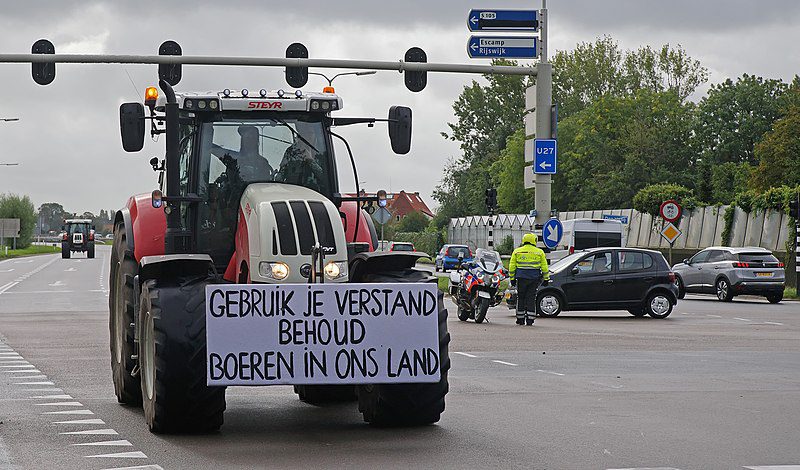
The EU’s Nature Restoration Law (NRL) passed yesterday, July 12th, and is throwing fuel onto the fire of the long-simmering Dutch emissions dispute. This morning, the Netherlands’ largest farmers’ lobby said that the legislation would only aggravate further protests.
A razor-thin 12 MEP majority secured the passage of the NRL at a plenary session in Strasbourg yesterday despite stiff opposition from the conservative EPP group and agricultural lobbyists claiming that the law unfairly penalises food producers.
Under the terms of the NRL, up to 30% of European land will be designated as environmentally protected, vastly impairing agricultural production in whole swathes of the continent and which critics fear will only worsen the current plight of Dutch farmers.
The NRL is bad news for already struggling Dutch farmers who have been in a four-year-long running battle with the government over nitrogen emission restrictions which protestors say will decimate the country’s economically strategic agricultural sector at a time of rising food inflation. The situation has directly contributed to the rise of the Dutch BBB party.
The NRL was so extreme that it even drew opposition from some members of the Renew group, who sit with Dutch PM Mark Rutte’s VVD party in the European Parliament.
The Netherlands is set for a snap election. The VVD-led coalition collapsed last week in a dispute over asylum numbers as opinion polls showed that the farmer populist BBB party and the nationalist PVV party are set to be the primary beneficiaries of the turmoil.
Frans Timmermans and the European Commission want to push a so-called 'nature restoration law' onto the Member States of the #EU.
— Rob Roos MEP 🇳🇱 (@Rob_Roos) May 23, 2023
A law that would be very harmful for many countries, including mine: the Netherlands.
That's why I name it the Netherlands-On-Hold Law.
I call… pic.twitter.com/DRdMFEwDBW
Many in the EPP fear that events in the Netherlands give an indication of the future of European politics where traditional Christian Democratic support bases are shifting to populism, driven by the green agenda’s negative impact on agriculture.
While the famous tractor protests in the Netherlands have subsided in recent months following the victory of the BBB in regional elections, multiple farmers were arrested outside the Dutch Parliament last month as the state prepares to begin the mandatory purchase of farms.
Many in the European establishment fear that what has occurred in the Netherlands could be a precursor for a wider wave of agrarian populism, as Cypriot farmers began protesting ahead of the passing of the NRL this month warning that 79% of arable land in the country would be unfarmable due to the new regulations.
